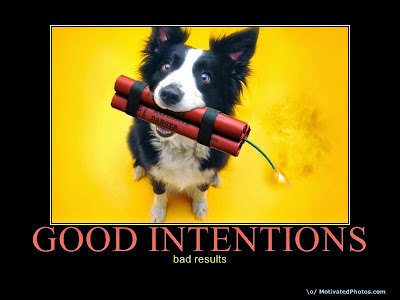Na última semana recordei duas frases da autoria do Aranha:
- "Não me venha com os seus factos que eu tenho os meus argumentos!"
- "Quando o empresário português tem um problema, saca da carteira e compra uma máquina!"
- Good fences make good neighbours
"When we seek to intervene in any system created by someone, it’s not enough to view their decisions and choices simply as the consequences of first-order thinking because we can inadvertently create serious problems. Before changing anything, we should wonder whether they were using second-order thinking. Their reasons for making certain choices might be more complex than they seem at first. It’s best to assume they knew things we don’t or had experience we can’t fathom, so we don’t go for quick fixes and end up making things worse."Este trecho que se segue fez-me recordar "Most thinking stops at stage one":
"Second-order thinking is the practice of not just considering the consequences of our decisions but also the consequences of those consequences. Everyone can manage first-order thinking, which is just considering the immediate anticipated result of an action. It’s simple and quick, usually requiring little effort. By comparison, second-order thinking is more complex and time-consuming. The fact that it is difficult and unusual is what makes the ability to do it such a powerful advantage."Na última Terça-feira vimos as imagens do primeiro-ministro holandês fazer um discurso sobre novos comportamentos e, depois, o seu lado "fast" actuou e instintivamente fez o contrário do que tinha acabado de pregar. Pena que a cena dos amadores a jogar bilhar seja tão comum quando se toma a decisão de comprar uma máquina e, não se considera se ela viola as orientações estratégicas à la Terry Hill.


%2006.21.jpeg)













Sem comentários:
Enviar um comentário